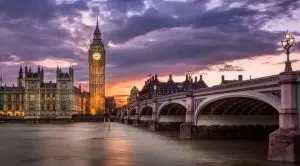 The future amendments to the gambling legislation of the UK have been overtaken by Downing Street. This followed the increasing desire for changes in the industry by prime minister Boris Johnson and his advisers. With numerous bad cases in the gambling industry every day, it comes as no surprise that the gambling legislation needs serious reforming.
The future amendments to the gambling legislation of the UK have been overtaken by Downing Street. This followed the increasing desire for changes in the industry by prime minister Boris Johnson and his advisers. With numerous bad cases in the gambling industry every day, it comes as no surprise that the gambling legislation needs serious reforming.
The anticipated review of the legislation is planned to begin this autumn, with the Department of Digital, Culture, Media and Sport (DCMS) being in charge of the reforms. Despite that, sources close to the case have informed that Boris Johnson, along with his close advisers, has taken upon the task of managing the review of the legislation.
Dominic Cummings, the closest adviser of Boris Jonson, has shown strong interest in the steering of the reforms in the Gambling Act of 2005. The director of the No10 Policy Unit, Munira Mirza, has also developed an aptitude for the overtake of the review of the gambling legislation.
Restriction on Gambling Advertising is One of the Main Concerns of DCMS Officials
 The 2005 Gambling Act introduced the legalisation of various forms of gambling, making the UK one of the countries with the laxest gambling regulations. Members of Downing Street are reported to be working towards legislation reform that may revise a big part of the current Gambling Act. One of the main changes that are planned to be introduced includes a more strict regulation of advertising.
The 2005 Gambling Act introduced the legalisation of various forms of gambling, making the UK one of the countries with the laxest gambling regulations. Members of Downing Street are reported to be working towards legislation reform that may revise a big part of the current Gambling Act. One of the main changes that are planned to be introduced includes a more strict regulation of advertising.
There are some concerns that the judgement of the DCMS may be clouded due to the financial benefit that gambling advertising brings to sports teams and broadcasting media. These sectors tend to have the support of DCMS officials, which may have a negative effect on the advertising reform.
While the sports minister Nigel Huddleston has shared his approval of a serious review of the 2005 Gambling Act, another DCMS figure, Diana Barran, shared her disbelief at the negative impact of advertising. Despite that, a DCMS official has denied that there is a lack of attention towards the advertising issue, affirming the department was joining forces with No 10, instead of being controlled by it.
The Common Wish for Gambling Reforms Leads to Coalitions Between Different Parties

The need for gambling reforms has brought to life various cross-party coalitions, all sharing the all-party parliamentary group’s (APPG) view on banning gambling advertising. The joined effort also continued in the House of Lords with the foundation of a new group that goes by the name of Peers for Gambling Reform.
With Lord Foster of Bath in charge of the group, there has been a call for measures that include rigorous checks on the affordability of gamblers and holding firms that prevent gambling harm responsible for the protection of vulnerable individuals.
The APPG members want to slash maximum allowed wagers and implement some restrictions on the time gamblers spend playing casino games. There is also a call for testing of the potential risk that new forms of gambling may impose.
Lord Foster has shared that the gambling industry is in need of urgent reform as every day there is an increasing number of suicide cases due to gambling addiction. In addition to that, the online gambling sector has taken advantage of the pandemic, enjoying higher profits and putting more vulnerable people at risk.
- Author


